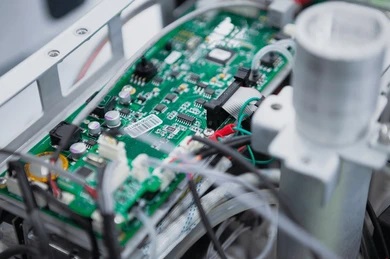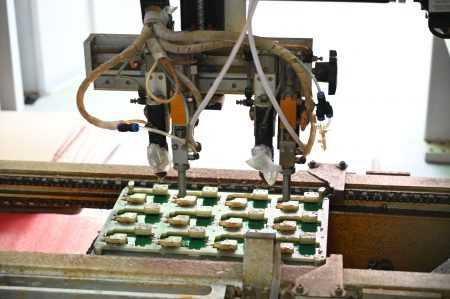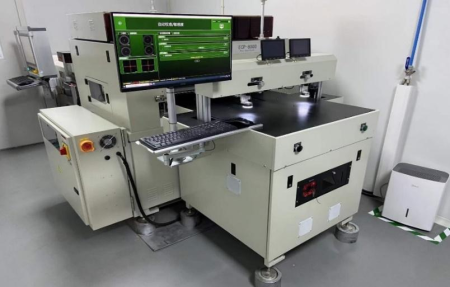- +86-755-23012705
- Building 3, Jinfeng Industrial Park, Fuyong Street, Baoan District, Shenzhen ,China
- [email protected]
In recent years, environmental regulations have become a significant factor influencing various industries, including the electronics sector. The Printed Circuit Board Assembly (PCBA) industry, which plays a pivotal role in the production of electronic devices, is no exception. With growing concerns over environmental sustainability, governments around the world have implemented stricter regulations to reduce the ecological footprint of manufacturing processes. These regulations not only impact production methods but also shape the materials, technologies, and practices used in PCBA manufacturing. In this blog post, we will explore how environmental regulations are affecting the PCBA industry and what manufacturers need to know to stay compliant and competitive.
One of the most significant impacts of environmental regulations on PCBA manufacturing is the restriction on the use of hazardous materials. The Restriction of Hazardous Substances (RoHS) directive, which originated in the European Union, is one of the most well-known and widely adopted regulations in the electronics industry. RoHS limits the use of specific hazardous substances like lead (Pb), mercury (Hg), cadmium (Cd), and certain flame retardants in electrical and electronic equipment. This regulation has forced PCBA manufacturers to find alternative materials that are less harmful to both the environment and human health.
For example, lead-free soldering is now the industry standard, replacing lead-based solders that were once commonly used in assembly. While transitioning to lead-free alternatives like tin-silver-copper (SAC) solders has posed challenges in terms of process adjustments and material cost, it has also opened the door for innovation in more environmentally friendly manufacturing processes.

Environmental regulations also push manufacturers to reduce energy consumption and minimize waste generation. The Energy Star program, for instance, promotes energy-efficient manufacturing practices, encouraging companies to adopt equipment that meets specific energy consumption standards. In response, many PCBA manufacturers have implemented energy-saving technologies, such as advanced power management systems, efficient lighting, and optimized heating processes during soldering.
Waste reduction, particularly in terms of hazardous waste like chemicals used in etching and cleaning processes, is another critical area where regulations are having an impact. Manufacturers are increasingly adopting closed-loop systems for chemical recycling and treatment, as well as finding ways to reduce the volume of scrap PCB material. These efforts not only help companies comply with regulations but also reduce operational costs and enhance their sustainability credentials.
As electronic waste (e-waste) continues to grow globally, end-of-life (EOL) regulations have become a priority. The Waste Electrical and Electronic Equipment (WEEE) Directive in the EU, for example, requires that manufacturers design products in a way that makes them easier to recycle and reduce e-waste. For PCBA manufacturers, this means designing assemblies with recycling in mind, such as using materials that are more easily separated or that have a higher recycling rate.
The WEEE Directive and similar regulations around the world are driving the PCBA industry to adopt better practices for the end-of-life phase of electronic products. This may include providing consumers with more information on how to dispose of products responsibly or partnering with specialized recycling companies to ensure that electronic devices are processed in an environmentally friendly manner.

In addition to meeting regulatory requirements, there is an increasing push from consumers and stakeholders for companies to adopt sustainable practices. Manufacturers are being encouraged to integrate eco-design principles into their products. Eco-design involves creating products that are not only functional and efficient but also have a minimal environmental impact throughout their lifecycle.
For PCBA manufacturers, this means reducing material usage, minimizing energy consumption during production, and ensuring the end product is easier to repair, upgrade, or recycle. Incorporating renewable or biodegradable materials and reducing packaging waste are also becoming more common practices. By aligning with sustainability goals, PCBA manufacturers can appeal to environmentally conscious consumers and stay competitive in an increasingly eco-aware market.
One of the challenges posed by environmental regulations is the need for manufacturers to comply with multiple, sometimes conflicting, standards across different countries. While RoHS has been widely adopted in Europe and has influenced global standards, other regions may have their own regulations, such as the China RoHS or California Proposition 65, which can impose different requirements on materials, testing, and product labeling.
For multinational PCBA manufacturers, navigating this complex regulatory landscape can be a significant challenge. Companies must stay up-to-date with the latest regulations and ensure that their products meet the requirements of all the markets they serve. This often involves additional testing, certifications, and documentation, which can increase both time and costs for manufacturers.

Environmental regulations are reshaping the PCBA manufacturing industry in significant ways. While these regulations impose challenges—especially in terms of material sourcing, waste management, and compliance—they also present opportunities for innovation, cost savings, and long-term sustainability. Manufacturers that can adapt to these changes and embrace eco-friendly practices will not only stay compliant with global standards but also gain a competitive advantage in an increasingly eco-conscious market.
As we move towards a more sustainable future, PCBA manufacturers must continue to prioritize environmental responsibility in their processes, materials, and product designs. By doing so, they will contribute to a greener world while positioning themselves for success in a rapidly evolving global marketplace.
Make Your PCB Dreams a Reality with XPCB Limited
XPCB Limited is your go-to partner for turning your PCB dreams into reality. Our streamlined PCB manufacturing process, combined with quick-turnaround prototyping and turnkey PCBA services, ensures that your projects come to life with ease. Trust in our expertise and dedication to quality as we help you achieve your PCB goals. Join us and experience the difference with XPCB Limited.






XPCB Limited is a premium PCB & PCBA manufacturer based in China.
We specialize in multilayer flexible circuits, rigid-flex PCB, HDI PCB, and Rogers PCB.
Quick-turn PCB prototyping is our specialty. Demanding project is our advantage.
Tel : +86-136-3163-3671
Fax : +86-755-2301 2705
Email : [email protected]
© 2024 - XPCB Limited All Right Reserve
